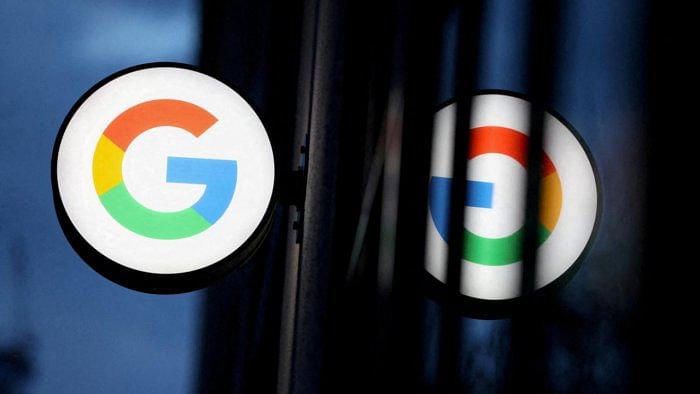
In a big setback to Google, the Supreme Court on Thursday refused to stay the order by the Competition Commission of India which directed tech giant to make changes to its Android ecosystem.
The top court, however, granted Google a week's time to comply with the anti-trust’s October 20, 2022 order as the deadline ended on January 19.
A bench of Chief Justice D Y Chandrachud and Justices P S Narasimha and J B Pardiwala affirmed the National Company Law Appellate Tribunal (NCLAT) January 4 order that asked the search engine giant to deposit 10 per cent of Rs 1,337.76 crore penalty imposed by the CCI for alleged anti-competitive practices.
"We are not inclined to stay the NCLAT order. We are resisting from evaluating the rival submissions as anything on merits would interfere with the proceedings before the NCLAT. CCI's order cannot be held without jurisdiction at the interlocutory stage," the CJI said in its order.
The court asked the NCLAT to decide the Google’s appeal against the CCI’s order expeditiously by March 31.
The NCLAT had fixed the matter for hearing on April 3, while refusing to stay the CCI’s order for “lack of urgency.”
During the hearing, the bench told Google, represented by senior advocate A M Singhvi, "All that you have goes against you. Look at the kind of authority which you wield in terms of dominance. Look at the market you hold, with that line of penetration you insist on your bouquet. But if you insist on a bouquet. You lose open source. It affects choice to consumer. With Google's market and line of penetration, why is Chrome insisted upon?"
The court also said that it cannot lose sight of the peculiarities of market here, the depth and penetration and cheap data because of the mass consumption.
Google has been claiming that it had been operating the Android mobile platform for the last 15 years and “far-reaching changes” as directed by the anti-trust order will lead to “lasting and irreparable harm” to it, device manufacturers, Indian consumers, app developers, and the wider Indian economy.
Senior counsel AM Singhvi, appearing for Google, argued that one of the CCI's direction is keeping the stable open.
"Allowing a rival Play Store owner inside my play store is like saying that any trespasser can come and sit in your house. How do I ensure safety, prevent malware? Can CCI give a direction like that? Can CCI order a rival play store owner to sit inside my play store," he asked.
He claimed there has been no investigation or finding of abuse of dominance. “If something is happening for 20 years, what will happen if there is an extension of three months. Where will Google run away,” he said, seeking stay of the order.
Additional Solicitor General N Venkataraman opposed any stay.
He said that the Competition law "democratises business and stops an feudalistic practice. Any stay will create an hurdle.”
The anti-trust order had asked the tech giant that the licensing of its Play Store should not be linked with the requirement of pre-installing Google search services, the Chrome browser, YouTube or any other Google applications.
Besides, the CCI ordered Google can not prohibit uninstalling its apps by Android phone users. As of now, apps such as Google Maps or YouTube can not be deleted from Android phones when they come pre-installed.
However, Singhvi claimed, "Unlike Apple, Android is not a closed ecosystem. It is an open source. Google's MADA (Mobile Application Distribution Agreement) rules allow multiple play stores. People choosing Google isn't abuse of dominance, it is excellence. OEMs (Original Equipment Manufacturers) can decide to have Google as a pre-installed app which the user is free to uninstall.”
